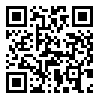مجله رویش روانشناسی از دادن گواهیهای کاغذی معذور است. لطفا تقاضا نکنید. همه گواهی ها در صفحه شخصی کاربران موجود است.
year 13, Issue 2 (spring 2024)
Rooyesh 2024, 13(2): 1-12 |
Back to browse issues page
Download citation:
BibTeX | RIS | EndNote | Medlars | ProCite | Reference Manager | RefWorks
Send citation to:



BibTeX | RIS | EndNote | Medlars | ProCite | Reference Manager | RefWorks
Send citation to:
Ajorloo S, Pourhosein R, Naghsh Z. (2024). the effectiveness of the self-review method on psychological distress, psychological capital, And psychological well-being in adolescent girls. Rooyesh. 13(2), 1-12.
URL: http://frooyesh.ir/article-1-4985-en.html
URL: http://frooyesh.ir/article-1-4985-en.html
1- Master in General Psychology, Faculty of Psychology and Educational Science, University of Tehran, Tehran, Iran.
2- Associate Professor, Department of Psychology, Faculty of Psychology and Educational Science, University of Tehran, Tehran, Iran. ,rezaph@gmail.com
3- Associate Professor, Department of Psychology, Faculty of Psychology and Educational Science, University of Tehran, Tehran, Iran.
2- Associate Professor, Department of Psychology, Faculty of Psychology and Educational Science, University of Tehran, Tehran, Iran. ,
3- Associate Professor, Department of Psychology, Faculty of Psychology and Educational Science, University of Tehran, Tehran, Iran.
Abstract: (2659 Views)
The present study aimed to determine the effectiveness of the self-review method on psychological distress, psychological capital, and psychological well-being in adolescent girls. The research design employed was a quasi-experimental design with a pre-test/post-test and a control group. The study sample consisted of female high school students in the first semester of 2022-2023 in Karaj city. A purposive sampling method was used, and based on the criteria, 22 participants were selected and randomly assigned to two groups of 11, the experimental and control groups. In this study, the Depression, Anxiety, and Stress Scale (DASS-21, Lovibond & Lovibond, 1995), the Ryff's Psychological Well-Being Scale (RSPWB, Ryff, 2002), and the Psychological Capital Questionnaire (PCQ, Luthans et al., 2007) were employed. The self-review intervention was conducted individually in four sessions, with an average duration of 45 minutes, and held twice a week. The data were analyzed using multivariate analysis of covariance. The results showed a significant difference in the mean scores of post-test psychological distress, psychological capital, and psychological well-being between the experimental and control groups while controlling for the pre-test effect (p < 0.01). Therefore, the self-review method can be considered an effective intervention in reducing psychological distress and increasing psychological capital and psychological well-being in adolescent girls.
Keywords: self-review method, psychological well-being, psychological distress, psychological capital, adolescent girls.
Type of Article: Research |
Subject:
General Psychology
Received: 2023/11/25 | Accepted: 2024/02/6 | ePublished: 2024/04/29
Received: 2023/11/25 | Accepted: 2024/02/6 | ePublished: 2024/04/29
Send email to the article author
| Rights and permissions | |
 |
This work is licensed under a Creative Commons Attribution-NonCommercial 4.0 International License. |





